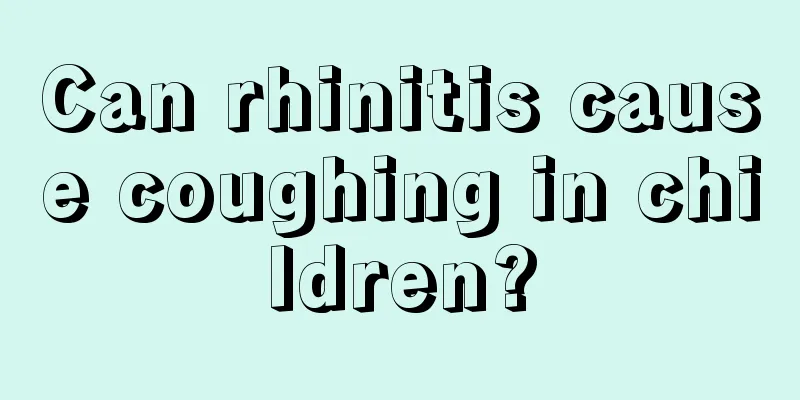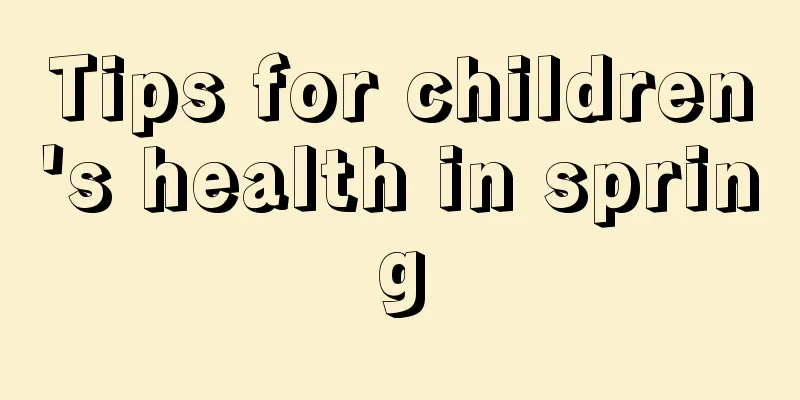What should I do if my baby is allergic to cow's milk protein?

|
Nowadays, some parents usually give their babies milk as complementary food, believing that milk has high nutritional value and is beneficial to the baby's physical and mental development. However, some babies will develop small papules on their skin, gastrointestinal discomfort, diarrhea, etc. after drinking milk. This is generally due to an allergy to milk protein. When this happens, how should parents deal with it? Let’s take a look together below. 1. Avoid allergens If your baby is allergic to milk, you should adopt a dietary elimination therapy, that is, strictly avoid eating foods containing milk ingredients in the next 3-6 months. Not only can you not drink regular formula milk, you can also not eat foods containing milk, such as cream cakes, bread, salad dressing, bovine colostrum, milk candy, and milk-containing biscuits, until the results of the "exclusion-provocation test" turn negative. Therefore, when choosing food for your baby in the supermarket, you must carefully read the ingredients of the food. 2. Breastfeeding Breastfeeding mothers should not drink milk. Although breastfed babies are less likely to develop allergies, they may also develop cow's milk protein allergies. If the baby has a milk allergy, the mother should avoid dairy products in her diet for 4 days. If the baby's allergy symptoms are relieved, the mother should continue to not consume dairy products and take calcium supplements if necessary to avoid calcium deficiency. Three: Formula feeding Choosing deeply hydrolyzed protein formula can effectively prevent baby milk allergy. If the baby is allergic to milk and the mother does not have enough milk or has no milk, the preferred substitute is protein-processed extensively hydrolyzed formula milk. Deeply hydrolyzed protein formula milk uses a special process to cut the large-molecule milk protein in milk that causes allergies into small fragments that can be directly absorbed and utilized by the human body without inducing abnormal immune responses. Therefore, it can be used to treat babies with milk allergies. Okay, after reading this, do you know what to do when your baby is allergic to milk? Many milks sold on the market now add a lot of chemical reagents in order to pass the quality inspection. These ingredients will not only cause the baby to be allergic to milk protein, but also affect the baby's physical and mental development. In severe cases, it may even cause abnormal intellectual development of the baby. Therefore, parents must pay more attention when choosing milk. |
<<: What kind of milk powder is good for babies who are allergic to milk?
>>: Is it okay to add egg yolk to baby's first complementary food?
Recommend
Precocious puberty in boys
With the improvement of living conditions, people...
Why are the newborn's testicles black?
Many new mothers, due to lack of experience and l...
22-month-old baby's developmental standard
I believe everyone has a certain understanding of...
What is the best thing for your baby to eat for the first time?
In our daily life, many babies grow up drinking b...
Why is the recheck rate of heel blood so high?
Heel blood screening is a relatively common exami...
Symptoms of baby's stomach pain, four major symptoms to remind you
Infants and young children do not have the abilit...
Children's sweet anti-inflammatory medicine
Good medicine tastes bitter but is good for the d...
What does early childhood education knowledge include?
Today's parents attach great importance to th...
Causes of severe cough in children
I believe that friends who have children at home ...
Children's nutritious meal recipes
Children's nutrition has always been a focus ...
What should I do if my child has sores?
Children have poor physical resistance and delica...
How to diagnose amblyopia in children?
Amblyopia and myopia have become one of the probl...
How should children with ADHD be treated?
Attention Deficit Hyperactivity Disorder (ADHD) i...
What are the symptoms of liver function in children?
Children's liver function should be the most ...
Why do children suddenly have nosebleeds in summer?
Children rarely have nosebleeds before the age of...









